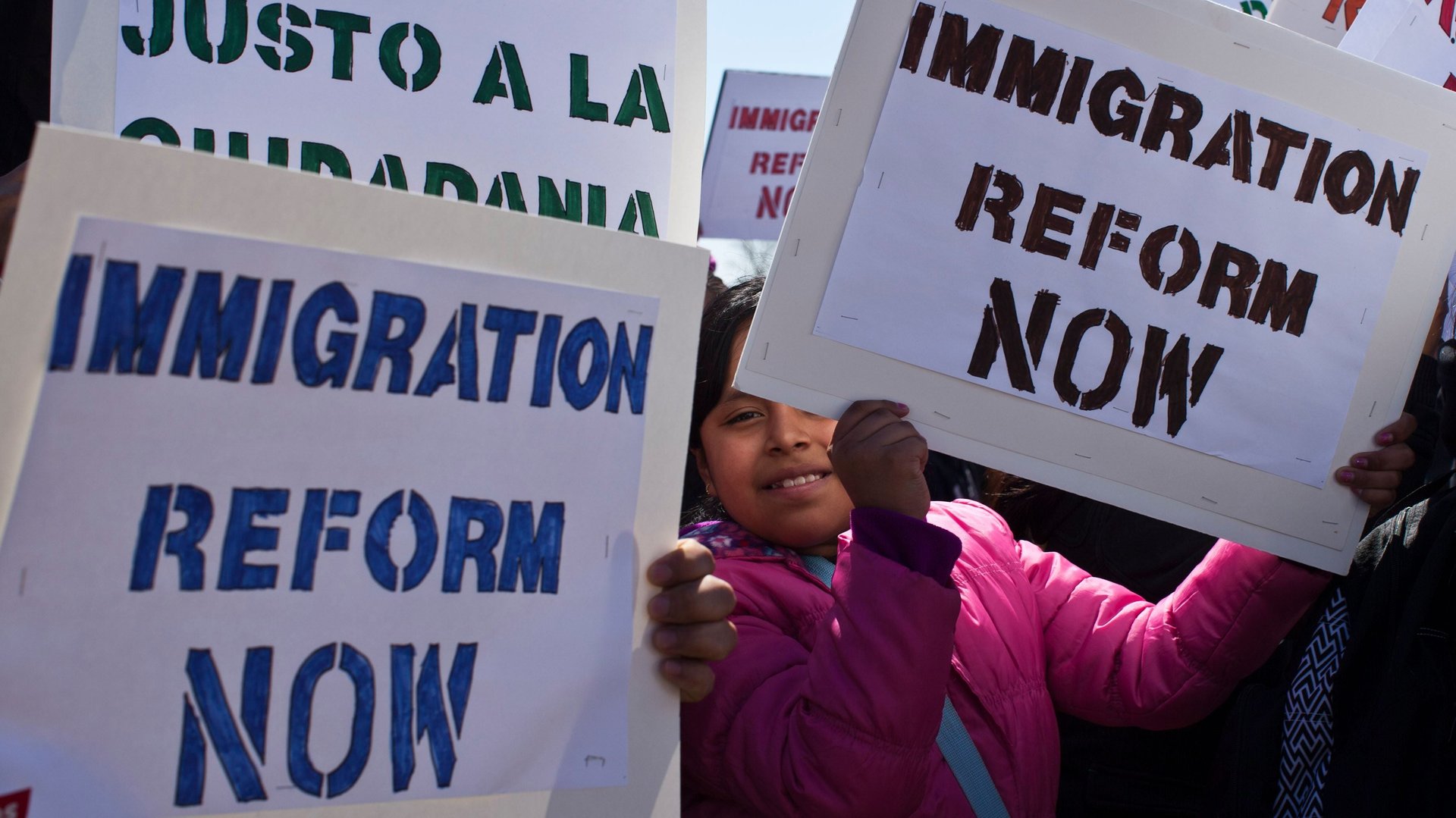An Indian CEO is held for duping US visa authorities to bring in 200 foreigners
An Indian CEO has been charged with H-1B fraud on nearly 200 counts.


An Indian CEO has been charged with H-1B fraud on nearly 200 counts.
Pradyumna Kumar Samal, a 49-year-old native of the state of Odisha, was arrested on Aug. 28 upon landing at Seattle-Tacoma Airport in the state of Washington, the US Department of Justice (DOJ) said in a press release a day later. During his tenure as CEO of two technology firms starting in 2010, Samal allegedly ran a multi-year visa-fraud racket. The two Redmond, Washington-based entities he headed were IT services firm Divensi and geospatial data processing company Azimetry.
Samal has been accused of using a “bench-and-switch” scheme to “exploit foreign-national workers, compete unlawfully in the market, and defraud the US government,” as per the DOJ.
The complaint says Samal forged fraudulent letters and statements of work to get foreign nationals visas under the specialty occupation category. He made it appear as though corporate clients had agreed to use these employees when, in fact, they hadn’t. After US Citizenship and Immigration Services (USCIS) approved the applications based on fake documents, Samal’s firms “benched” them, leaving them unpaid until they could actually be placed at a client’s site.
Nearly 200 workers have fallen prey to this scam till now. They were even forced to pay Samal’s two companies a partially refundable “security deposit” of up to $5,000 for the visa filings—a hefty charge considering that no work or salary was guaranteed. Some comments on Divensi’s page on myvisajobs.com, a work-visa monitor, suggest that the employer usually doesn’t return the money at all.
Since its founding, Divensi has filed 1,139 labour condition applications, a prerequisite for H-1B visas; Azimetry has 929 in total.
Diane Butler of Davis Wright Tremaine law firm, who is representing Samal, has refuted these allegations. The charges laid against her client “reflect the current hostility toward business immigration in a zero-tolerance environment,” she told the Seattle Times newspaper.
If found guilty, the repercussions are going to be severe: up to 10 years in prison and a $250,000 fine.
Abuse on the rise?
Earlier this year, California-based Cloudwick Technologies was accused of H-1B visa abuse of a different kind. The firm, owned by Indian-American Mani Chhabra, promised a monthly salary of $8,000 to temporary workers from abroad but paid them a mere $800. In 2017, India’s second-largest IT company, Infosys, paid $1 million to settle an investigation into its visa violations.
And it’s not just about Indian entities. In 2011, a local public school district in Maryland was deemed a “willful violator” of the H-1B programme and charged $5.9 million in back wages and fines by the Obama administration. The following year, a New Jersey-based consulting firm had to pay up $300,000 to workers for similar offences.
Still, experts suggest these cases are far and few between.
“Enforcement actions (like these) should be taken as evidence that existing audit and investigation mechanisms are adequately designed to identify the rare instances of fraud,” said Leon Rodriguez of Seyfarth Shaw LLP, director of the USCIS between 2014 and 2017. “On the other hand, they should not be taken as an indictment of the entire H-1B visa programme, which brings considerable benefit to US companies and to the US economy.”
On its part, the Donald Trump administration has cracked down hard on H-1B malpractices. Among other things, it has launched targeted on-site visits to discover fraud and abuse.